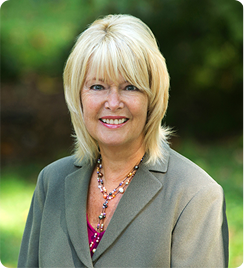
Retirement here I come! Are you longing for the day when you don’t have to work anymore? When you can retire? This concept of retirement is changing dramatically. Previously, retirement usually occurred around 65 and most entered a life of rest and relaxation. That’s no longer the template.
Many people are working for pay way past 65. Either because they need funds to survive or because they have uncovered a reason to keep working. And most are doing some form of unpaid work. Whether it’s caregiving parents, partners or grandchildren, serving their communities or volunteering with non-profits.
Why do you work? Looking over your work cycle, note how the reasons you work change over time. You probably worked during high school and college. These were spending money jobs, money for books, tuition money or internships that introduced you to various fields. Some jobs were paid and others you did for experience or to give back. Maybe through volunteering you earned credits or good references or a place in heaven.
Remember your first real job after graduation? Were you working because you were driven or because it was expected? Were you hoping to live independently and become successful in a chosen field? Or were you testing the waters, making relationships, learning about yourself?
As you grow, so do your reasons for working. There is often the need not only to support yourself, but also a growing family. There is the societal pressure to accumulate material possessions and experiences, like cars, homes, vacations. But there is also the drive to move up the ladder. Take on more responsibility and leadership, and produce results while becoming an expert in your profession.
Samantha is in her 50’s and was just appointed full professor at the state university. She worked very hard to get there, teaching, doing research, chairing committees, earning grants. Samantha is often tired and overwhelmed with her work load. She always thought being a professor would be something she could do forever, slowing down gradually as she aged. And yet as she rises through the ranks, it seems people expect more from her. And the system she entered no longer looks the same. She is teaching less and grant writing more.
While Samantha questions what is ahead for her, she hardly dares to ask why she continues in her position. What does it provide her? Is she fulfilled?
Samantha’s friend Harry is retired and his life seems so simple to Samantha. He appears to have no pressures and his time is his own. Harry retired because he could afford it and was no longer finding work satisfaction. Harry thought he accomplished everything he desired, but now often finds himself adrift.
Harry is 70 and society accepts that he is retired. No one asks him why he isn’t working. In fact if he found a new career or started his own business, people might wonder why. Now if Samantha retired at 55, she might have to explain herself to family, friends, society.
As long as we believe there is a prescribed place you need to be based on your age, we will have people who defy those norms. As people age, most seek work that has meaning and purpose. Meaningful to you and meaningful to others.
How will you decide when to work and when to retire? How will you answer that question: What do you do? Who are you? How will you design what is best for you?
George is 85 and still works for pay part time. His sister is 88 and working also. This wasn’t the norm with their parents, but it is their way. If you ask them why they still work, they will tell you they enjoy it. It stimulates them. They are making a difference and choose to be involved. Who are we to say what’s best or right for someone else? How can we acknowledge all the various life designs that people create?
“If a man does not keep pace with his companions, perhaps it is because he hears a different drummer. Let him step to the music which he hears, however measured or far away.”
Henry David Thoreau
You can benefit from these diverse role models as you chart your course. There is no script to follow. You have the freedom to make life fit your desires. A second, third, fourth act await you, if you wish. Your legacy will comprise all that you create and the lives you touch.
Why work:
List your current reasons for working
Make a work history time line
Identify your current legacies
Imagine how your future could be different
Take one step toward your vision
Happy drumming and hope to meet on the path!










